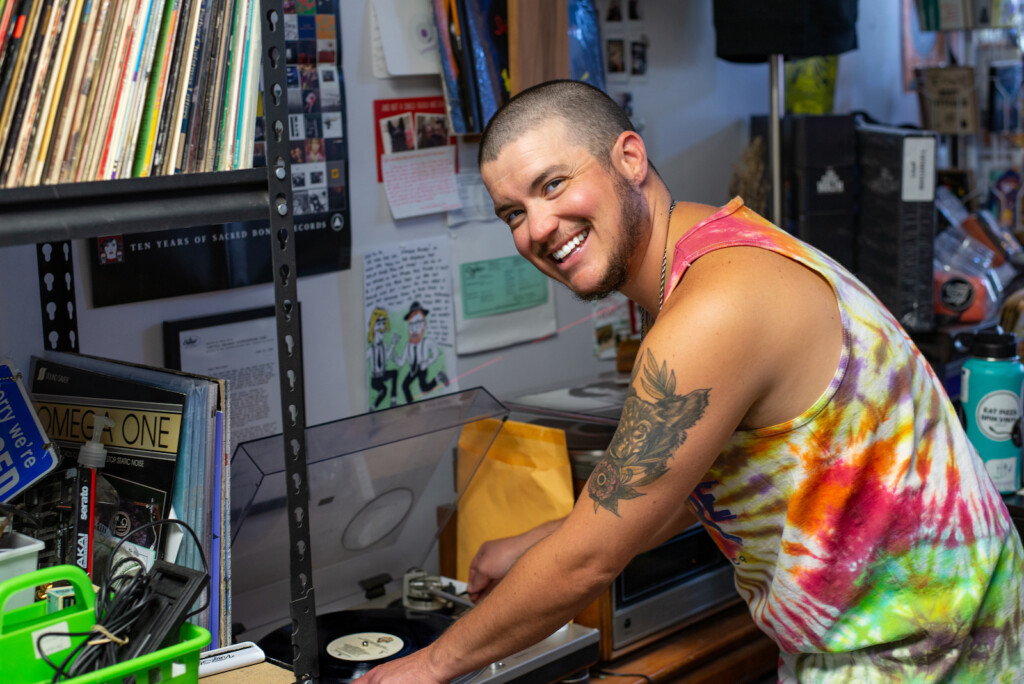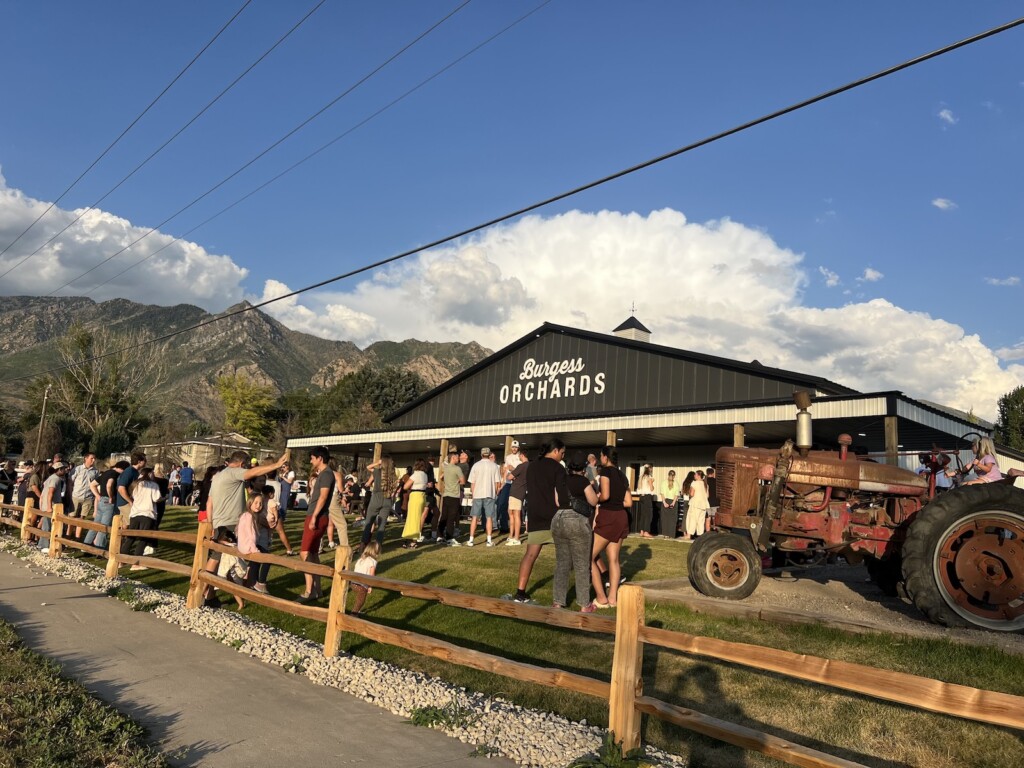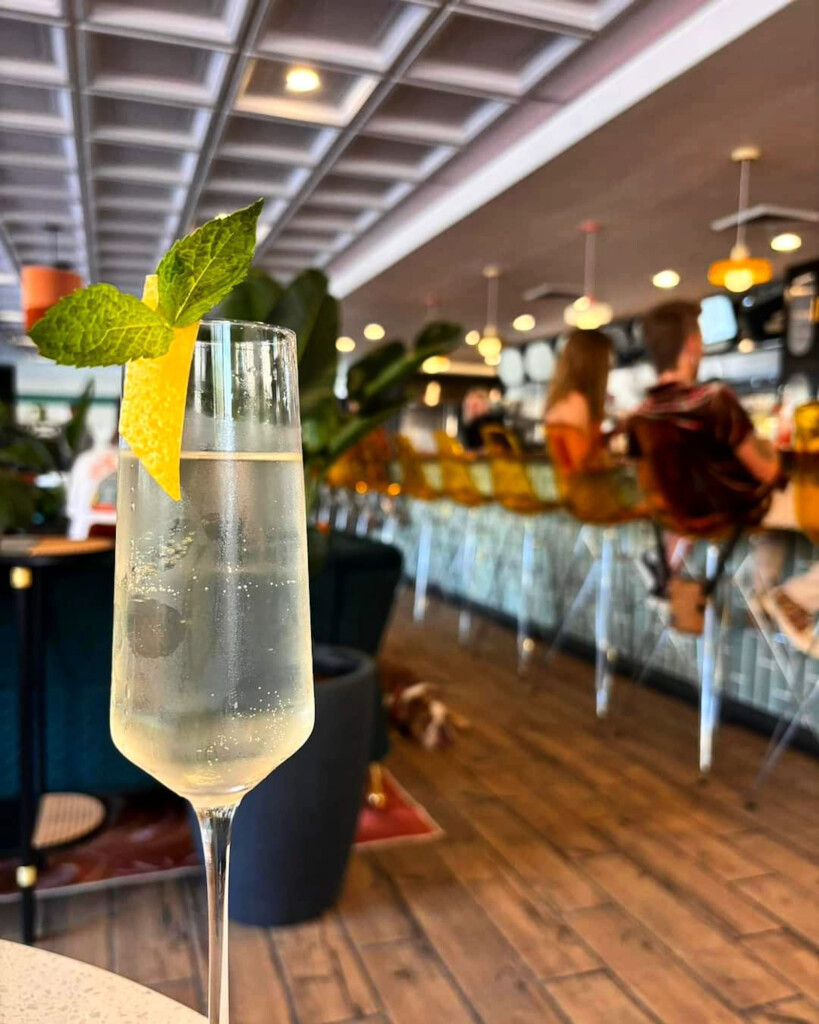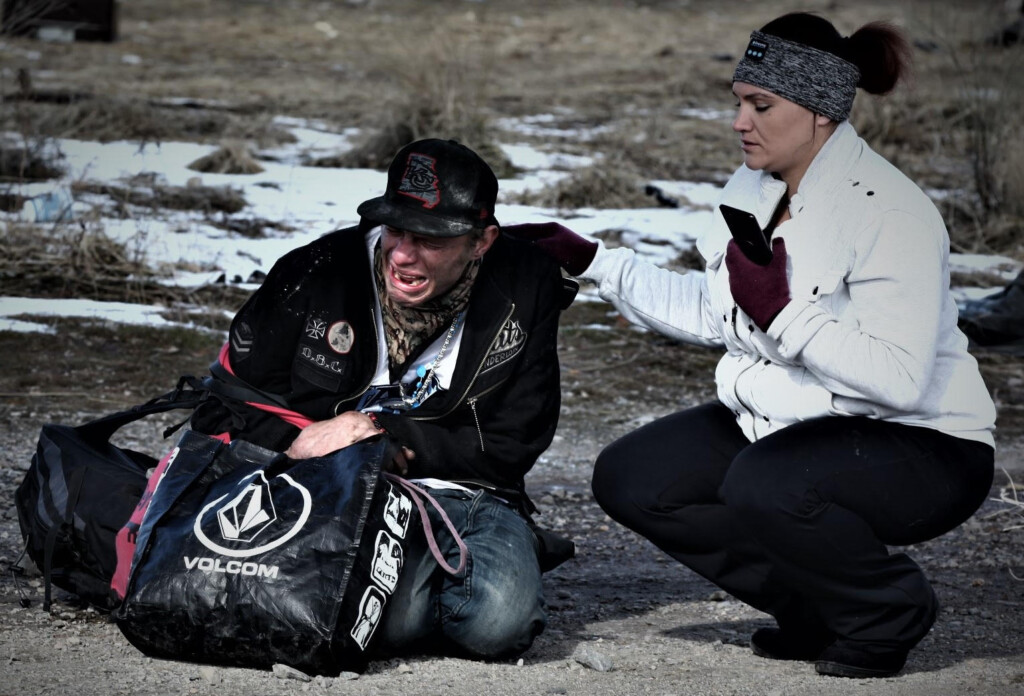Kye co-owns Lavender Vinyl, a record shop on Ogden’s historic 25th street where over 10,000 vinyl records (neatly arranged by genre) are for sale. On the store’s turntable, known as the listening station, customers can preview used records. “I show somebody how to work it at least once a week,” Kye said. Other passersby come in out of nostalgia. As people browse the records, they often share memories of concerts long ago and family members since passed. “I hear all kinds of stories,” Kye said. “You just see that spark on their face.”
Upending any notion that vinyl records and storefronts belong to the past, Lavender Vinyl is celebrating seven years in business this July, with plans to expand already underway. But to Kye and many loyal customers, the store’s success is about more than records. It’s about fostering community and supporting people who identify as LGBTQ+.
How does a store that sells records survive? Nationwide sales of vinyl records reached a new milestone last year, according to the Record Industry Association of America. Revenue from vinyl records grew 17% to $1.2 billion in 2022, the sixteenth consecutive year of growth. That same year, vinyl records accounted for 71% of all revenue from physical music formats and surpassed sales of CDs in units for the first time since 1987.
Kye worked for six years at Utah’s largest record store, Graywhale Entertainment, in Salt Lake City, where he met friend and co-owner Blake Lundell. Although Blake loves heavy metal music and is more reserved, and Kye loves hip hop and is more outgoing, they strike a balance that Kye said makes them great business partners.
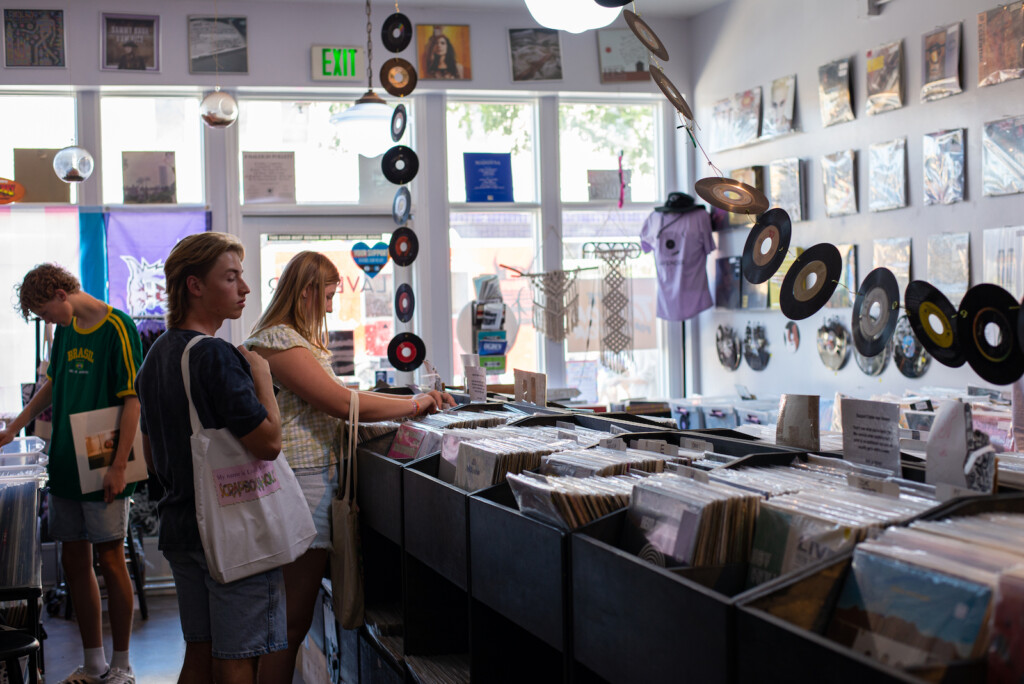
They also share the belief that a record store is a community cornerstone. “You can go in and talk to an actual human and have a connection and bond over a shared love of something,” Kye said. “It’s a whole experience.”
Although Lavender Vinyl receives new inventory every Friday, more than half of the store’s revenue comes from sales of used records. Their used collection spans all genres and is northern Utah’s largest, according to Kye. Once, a rare Frank Ocean album sold for $400, which the store split with the original owner. That kind of sale doesn’t happen very often. New vinyl records, which Kye said have a much smaller profit margin, typically sell for about $30.
Every week, Lavender Vinyl posts an Instagram reel that flips through newly arrived titles, which customers can pay an extra $6 to have mailed. Mail orders make up about 10% of their business. Over the years, Kye said they’ve shipped vinyl records to every US state.
While they do get foot traffic, their regular customers sustain the business. One of them is Ogden resident Linsey Kunzler, who started collecting records a decade ago. She’s purchased more than 50 records (mostly used) from Lavender Vinyl and gotten to know Kye, who she now considers a best friend.
Kye’s commitment to supporting people who are LGBTQ+ is “more important than the records,” Linsey said. It’s not just the rainbow pride flag in the store’s window, or the queer-owned coffee they stock and sell, or the queer magazine Kye and his wife started (the fourth edition of which came out in June), or the events Kye hosts to bring together the queer community.
It’s Kye himself, who openly shares his journey as a transgender man. The process of receiving gender-affirming care “was an absolute nightmare,” Kye shared in a 2021 episode of the podcast “Toasted Lavender”, which he co-hosted with Linsey and their spouses.
“I feel like my business gave me the confidence to be who I really am,” Kye told me. He’s aware of many trans people who don’t have that luxury, because coming out might result in losing their job, housing or even family members.
“I have all those things secured for myself,” Kye said. “I want to share my security with anybody who needs it.” Kye also wants to show that he’s “just a regular-ass guy running a business.”
While running that business is a dream come true for both Kye and co-owner Blake, it takes a lot of work. They are the store’s only two employees. “You’re responsible for everything,” Kye said. “It can cause a lot of stress.”
This year, Lavender Vinyl opened two satellite stores: one in Bountiful inside Split Leaf Coffee, and the other in Logan inside Grounds for Coffee. “It’s not huge or anything, but it’s already positive,” Kye said. Eventually, they hope to have a second permanent location of their own.
As far as the day-to-day, Kye loves sharing music with people. He sees music as a “universal language,” and a powerful force for good, especially amidst the ongoing, divisive debate over transgender rights. “I feel like music is something that can really unite us,” he says. “And I see that every day in the connections that I have with people who come into our store.”

